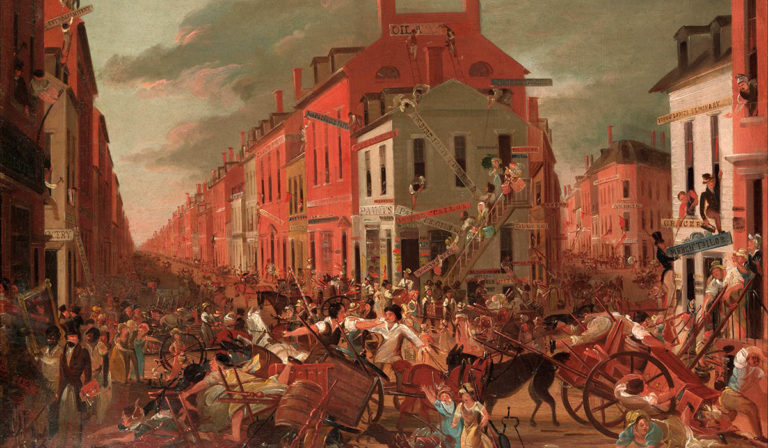I just moved. It seems like I have done a lot of that, especially over the last ten years. This time was more painful than most. But then I thought about how much worse it was for my ancestors in Brooklyn. When my mother was growing up, her family moved frequently. When the rent increased, my grandmother would search for a new place to live. They didn’t move very far or have many things, perhaps because they moved so often. Lacking the funds to hire professional movers, they stuffed all their belongings into shopping carts, pushing them back and forth through the busy Brooklyn streets as they made their way to their new home. There was a trail of pets following behind. Dealing with the elements must have made it even more dreadful.
If you think it couldn’t get worse, consider what it would have been like if every tenant in New York City moved on the same day. It’s hard to believe, but New York City had a peculiar tradition called “Moving Day,” that dates back to colonial times. At 9 A.M. on May 1, all leases in the city expired, causing thousands of people to move from their residences all at once. 1 If you were a tenant in Brooklyn, you would move with every other renter in the city, on the same day. The origin of Moving Day is disputed; however, in 1820, New York State law formalized the tradition, stipulating that all property leases would expire on May 1 unless otherwise noted. 2 On February 1, landlords notified tenants of rent increases, giving them three months to find a new place. 3 If they couldn’t afford the rent, the tenant would have to move.
It’s hard to picture tens of thousands of people loading their furniture and personal items onto carts and wheel barrows, navigating them through the city. Streets and sidewalks were gridlocked. By 1820 Moving Day had become total mayhem. 4 Could you imagine if this happened today?
It was a day of panic, disorder and price-gouging. On top of the mayhem, all the carts and wagons in the city were fully booked with moving fees that were astronomical. Long Island farmers traveled to the city to rent their carts just to make some extra cash. Meanwhile, it wasn’t unheard of for tenants to pay a week’s salary just to hire a mover. 5
The sentiment of the time was one of dread and impending turmoil. In 1799, an observer commented that New Yorkers “are seized on the first of May, by a sort of madness, that will not let them rest till they have changed their dwelling”. 6
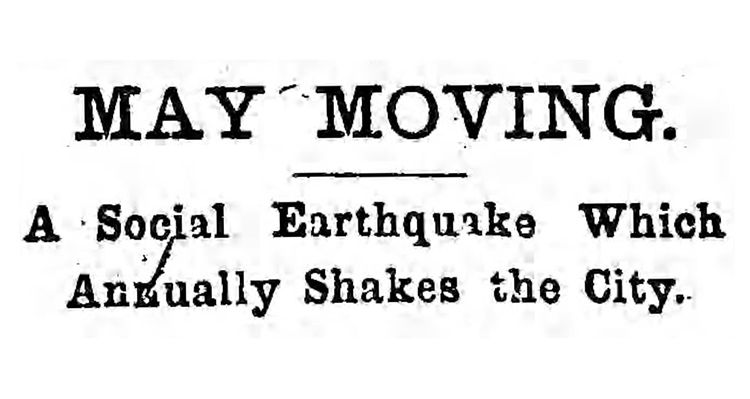
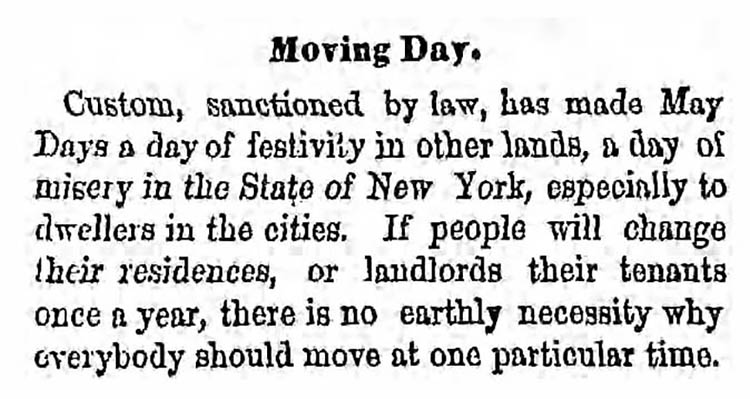
“Men and women are not born in a day; they are not married in a day; they do not die in a day but with us they all move in a day.”
The Evening World, 30 April 1890
But not all New Yorkers felt the same way about Moving Day. Some felt compelled to move for a variety of reasons. For some, change was good for the soul. It was an opportunity to start anew, embrace transformation, or simply turn a new page. For others, it was a sign of prosperity or a primal urge to escape from familiar surroundings.
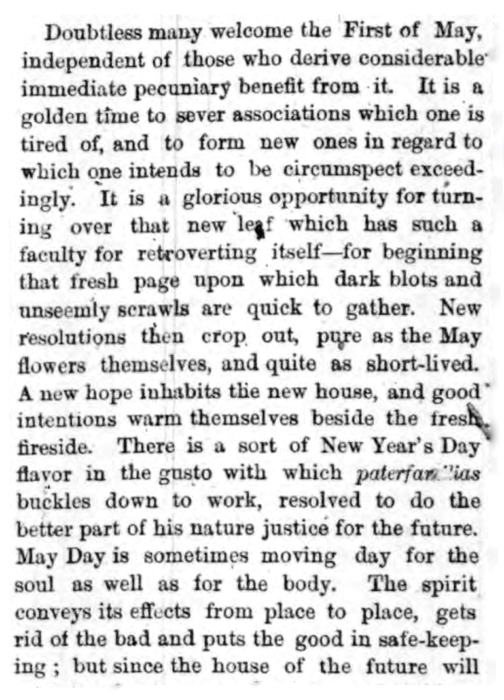
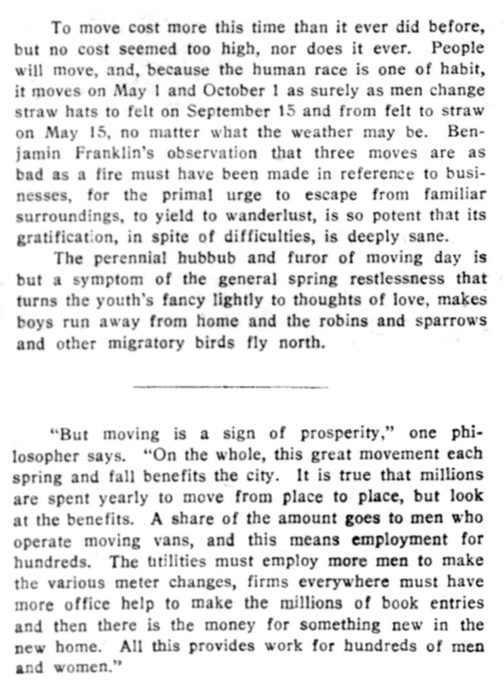
By the late 19th century, many people left the city for the cooler suburbs during the summer and October 1 became a second Moving Day. At its peak in the early 20th century, it is estimated that a million people in the city all changed their residences at the same time. 7 That’s just crazy.
Resistance to Moving Day was strong in the 1920s and ’30s. 8 Yet in 1928, it was estimated that 30,000 families moved in Brooklyn on May 1. 9 The practice ended at the start of World War II as the moving industry found it difficult to find men to do the work. Housing shortages and rent control ended it for good around 1945. 10
I documented 16 Brooklyn homes for Alfred Knowles, my great-grandfather, from 1892 to 1942. Similarly, for Clarkson Hendrickson, another great-grandfather of mine, I found records of 11 residences from his birth in 1890 to 1950. His father, Clarkson Hendrickson Sr., had 10 known Brooklyn residences between 1865 and 1941. This doesn’t cover the years I haven’t been able to trace or any homes outside Brooklyn.
Our most recent move took us weeks to pack up our belongings and it will likely take us a few months to get everything back in order. I can only imagine that my ancestors spent a better part of their year, looking for a new home, packing up their stuff and unpacking only to have to do it all over again the following year. This is the 14th residence in my lifetime. I don’t expect it to be my last.

